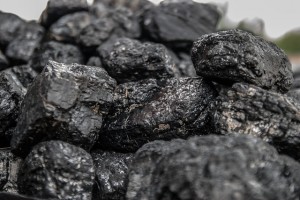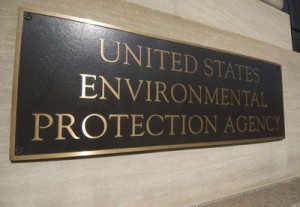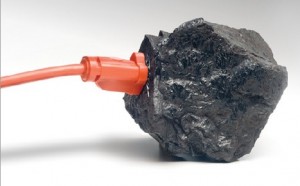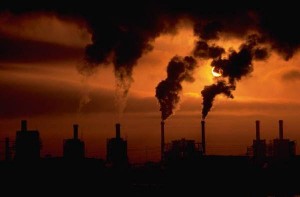39 item(s) were returned.
Editor
Bloomberg's First Word Energy
Coal can’t get much love. Cheap natural gas and a bevy of EPA regulations are conspiring to force old coal plants to close and pushing U.S. production down to less than one billion short tons, near a two-decade low. While low-cost production in Wyoming and Illinois has been able to hold steady, the legacy mines of Appalachia face devastating losses in production and jobs. Meanwhile, projects that were supposed to demonstrate a future for coal in a carbon-constrained world are struggling or dead. The Obama administration pulled the plug on the FutureGen clean coal project this month. Another similar project… [more]
View InsightOn December 22, 2008, a disposal cell at the TVA Kingston Fossil Plant ruptured, releasing an estimated 5.4 million cubic yards of fly ash in eastern Tennessee. Fly ash is one of a variety of coal combustion residuals (CCR), collectively referred to as coal ash and stored in more than 500 disposal facilities across the country. The Kingston spill prompted an EPA effort to reassess how coal ash is regulated. In the initial rule proposal, two different options for regulating coal ash were included, under the Resource Conservation and Recovery Act (RCRA), which regulates solid waste. The central question was… [more]
View InsightMember
U.S. House of Representatives
As Chairman of the House Subcommittee on Energy and Power, I’m continuing the fight against President Obama’s Environmental Protection Agency’s (EPA) overregulation of our nation’s power plants without any regard to the consequences for our economy and consumers. This week, the EPA is expected to release its proposed rule regulating carbon dioxide emissions from existing and modified electricity power plants. This effort is certain to result in a de facto cap and trade program, which Congress most recently rejected in 2009. This regulation follows the proposed rule on new power plants, which essentially makes it illegal to build a power… [more]
View InsightDirector, Energy Project
Bipartisan Policy Center
The Bipartisan Policy Center’s (BPC) Energy Project seeks your input as part of a yearlong effort aimed at fostering constructive dialogue and action on reforming the Renewable Fuel Standard (RFS). BPC commissioned a series of background papers on various RFS topics. The last three papers, summarized below, approach the RFS from the perspectives of policy and law, considering both the Environmental Protection Agency’s authority as well as broader federal regulations. Inventory of Federal Regulations Affecting Biofuels other than the Renewable Fuel Standard [Read here] Van Ness Feldman “Although the RFS has been the key driver in the production and use… [more]
View InsightMember
U.S. House of Representatives
Earlier this week, H.R. 3826, the “Electricity Security and Affordability Act,” which I co-authored with Senator Joe Manchin (D-WV), advanced through the House Energy and Power Subcommittee, by a vote of 18 to 11. This bipartisan, bicameral legislation provides a reasonable alternative to EPA’s proposed greenhouse gas standards for new power plants and the agency’s planned regulations for existing power plants. It now moves to the full Energy and Commerce Committee for consideration. Under EPA’s proposal, industry would not even be able to build the most state-of-the-art clean coal-fired power plant, because the technology required under the proposed regulation is… [more]
View InsightVisiting Scholar
American Enterprise Institute
According to the Environmental Protection Agency, the Social Cost of Carbon (SCC) is supposed to be “An estimate of the economic damages associated with a small increase in carbon dioxide (CO2) emissions, in a given year”. However, the EPA’s “analysis” of the “social cost of carbon,” developed recently as justification for a rule constraining energy use by microwave ovens, ignores the fact that U.S. emissions of greenhouse gases are about 17 percent of the world total. Therefore, even an immediate reduction by half in U.S. emissions would yield a reduction in world temperatures of about one-tenth of one degree by… [more]
View InsightManaging Director, Industrial & Environmental Section
Biotechnology Industry Organization
A recent editorial in the Wall Street Journal, co-signed by Rep. Patrick Meehan (R-Pa.), argues that growing renewable fuel obligations under the federal Renewable Fuel Standard (RFS) have come into direct conflict with declining U.S. demand for transportation fuel. The editorial asserts that current fuel distribution infrastructure and automobile engine guidelines limit the amount of ethanol that can be blended into gasoline to 10 percent, creating a “blend wall” beyond which further blending of ethanol becomes economically unreasonable. Meanwhile, in response to high fuel prices, consumers have radically curbed their driving habits and sought out new cars that meet more… [more]
View InsightA report, “Fuel Choice for American Prosperity,” recently published by the United States Energy Security Council (USESC), a group within the Institute for the Analysis of Global Security (IAGS), identifies challenges facing the United States’ pursuit of energy security. Despite oil imports expected to fall to their lowest level since 1987 (EIA), the total amount of money the U.S. spends on oil imports has increased. If energy security is defined as “reliable supply at an affordable price,” as the report’s authors define, the U.S. has improved the former, but failed to impact global oil prices, which have risen more than… [more]
View InsightThe U.S. Environmental Protection Agency (EPA) released draft rules on September 20th, to limit carbon emissions from new coal power plants. The proposed rules are part of President Obama’s broader Climate Action Plan aimed at combating climate change and improving public health, according to the EPA. Under the rules, new coal-fired power plants would be limited to 1,100 pounds of CO2 per megawatt-hour, or could opt to meet stricter average emissions limits that grant additional operational flexibility. The rules also would require new plants to implement partial carbon capture and storage (CCS) technology. Critics of the proposed rules argue that… [more]
View InsightThe U.S. Environmental Protection Agency has proposed amendments to Greenhouse Gas Reporting Program (GHGRP) requirements in an attempt to address industry concerns over revealing confidential business data. The GHGRP collects greenhouse gas data from forty-one source categories to “help us better understand where greenhouse gas emissions are coming from and improve our ability to make informed policy, business, and regulatory decisions,” according to the EPA. Calculating emissions within many industries involves equations that require detailed data, much of it considered confidential by the affected industry. Under current rules, such data would be categorized as “inputs to emission equations” and have… [more]
View Insight






